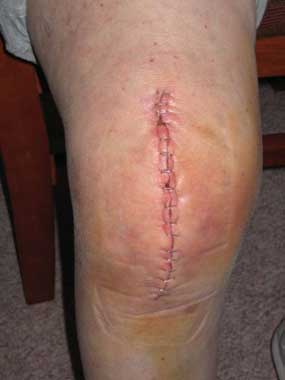Your surgeon will explain the results of your exam, x-rays, and diagnostic tests. He will tell you why surgery is recommended. He will explain the surgical procedure and the outcome you can expect. He will tell you about the risks of having or not having the surgery, the benefits of having the surgery, and the options available to you instead of surgery. Don’t be afraid to ask questions about anything you don’t understand. The more you know, the more confident you will be about doing your part in your treatment and recovery.
Your surgeon will ask you to sign a surgical consent form. This form is a legal paper that says your surgeon has told you about your surgery and any risks you will be taking by having the surgery. By signing this form, you are saying that you understand the risks and agree to have the surgery. Ask your surgeon about any concerns you have before you sign this form.
Talking With Your Surgeon
You probably want to know as much as you can about your surgery and recovery. The following are questions you can ask your surgeon. You may have others. Try to get all of your questions answered during your office visit so you understand everything clearly before surgery.
- How soon should I have surgery?
- Will I need a blood transfusion? If so, how many units? Can I donate my own blood?
- How long will I be in the hospital?
- How much pain should I expect right after surgery and how will it be controlled?
- What will the scar look like? (See image below of incision.)
- What are the possible complications of surgery and recovery, and how likely are they to happen to me?
- What will I be able to do or not do during recovery?
- What are the limitations of my new knee joint?
- How long should my new knee last?
If you think of other questions later, write them down and call your surgeon’s office.
